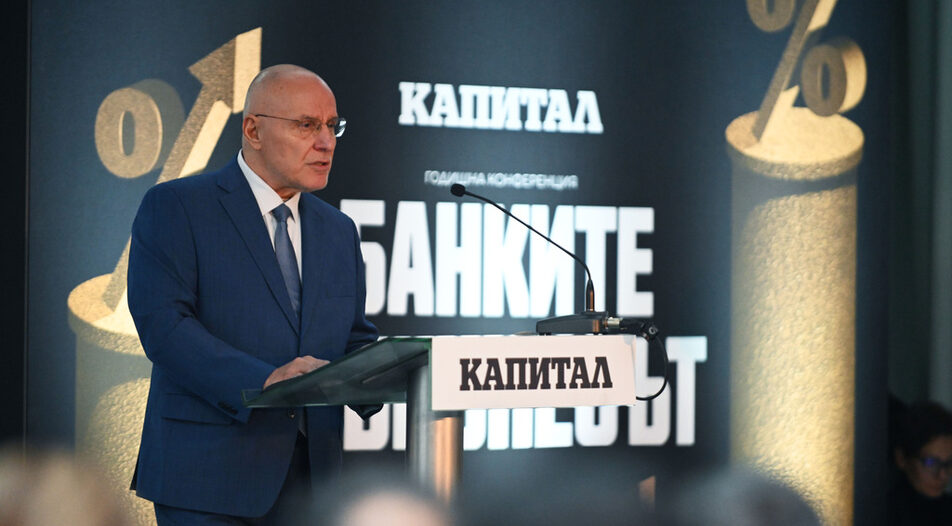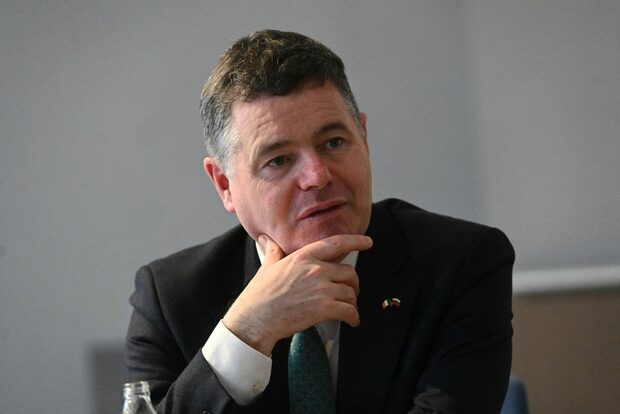- Brussels gave a fresh signal that the door to the eurozone is still open for Bulgaria.
- Membership from 1 January 2024 is still achievable, but political will and a lot of work are needed
- One of the next steps is the adoption of legal changes to give more precise guidance to institutions, businesses and banks for technical preparations for using the euro
On the same day when it became clear that Bulgaria would not enter the EU's border-free Schengen area soon, news arrived that the country has got closer to another major milestone - the entry into the Eurozone, by receiving a nod to start trial minting of euro coins. Purely practically, the signing of the relevant memorandum by the European Commission and the Eurogroup is a no-turning-back decision, according to experts. These were the two institutions to which Bulgaria made commitments upon entering ERM II, the preparatory phase for euro adoption, in 2020. Legally, the memorandum does not predetermine Bulgaria's membership but is a strong signal from Brussels that the door is still open.
A similar document was signed with Croatia in September 2021, after which it was decided that the Adriatic country will become the 20th member of the eurozone on January 1, 2023.
The signing of the memorandum for trial minting of euro coins, of course, does not mean that Bulgaria should ease off on hard work. Quite the opposite, it should hurry up with preparations for entry into the currency union. This is valid for the parliament, the government, and the Bulgarian National Bank (BNB).
One of the next steps, for example, is the adoption of the necessary legislative changes to give more precise guidance to institutions, businesses and banks on what technical preparations for using the euro as Bulgaria's new currency are required. Many of these changes are due to be voted on in the current fragmented parliament elected in a snap vote on October 2. Representatives of the banking sector are already warning that if the work drags on a little longer, the target date of January 1, 2024 will start to look unattainable. And rash political speech negatively affects the attitudes of businesses and society as a whole.
New hopes
The truth is that only a month or two ago, for purely political reasons, Bulgaria had set up a barrier on its own and sent wavering messages. At the end of October, however, the hung parliament decided that the government and the BNB have to accelerate efforts to introduce the euro in Bulgaria from January 1, 2024.
"It is difficult to find another topic today that receives such an impressive political support," said BNB Governor Dimitar Radev during the Banks and Business conference organized by the Capital Weekly when?. He also said that the central bank is focusing on the legal framework and technical preparation for membership of the euro area.
The demand of the banking sector is similar - clarity. In public speaking, all top representatives of commercial banks express confidence that this demand will be met, but in private conversations some of them voice concerns about whether the remaining year is enough. A manager at one of the large foreign-owned banks says that it is important for the sector to know whether to start allocating resources - both human and financial. According to their calculations, nearly 70% of the bank's IT team will have to be redirected to the project for switching from the lev to the euro currency. The investment needed for the switch amounts to tens of millions of levs. For the whole sector, the number will probably amount to nearly 100 million euro or 200 million levs.
"There is no time. And if the transition from levs to the euro is not done well and without the necessary campaign and preparation, even the fans of the euro area will hate it", says another manager in the banking sector.
"We haven't missed the train, but now is the time to work on the technical part. One year is a short period and if the work drags on a little longer, technically 2024 will start to seem impossible", adds Petya Dimitrova, CEO and Chairman of the Board of Postbank.
The risk of political populism
Besides the lack of time, another risk is populism in the parliament. The caretaker cabinet requested an extended effect of Budget 2022 until March next year, instead of submitting its own draft for Budget 2023 to the National Assembly. Thus, the question of exactly what kind of fiscal policy the state should pursue, remains for the next elected government. By the time of writing this article, the seven political formations that entered parliament in October have not reached an agreement to form a viable government coalition.
At the same time, the message of experts from the International Monetary Fund, the BNB, and many other economists is for a conservative budget for next year. "In October, for the first time in more than a year, the rate of inflation in our country reversed its persistent upward trajectory. We will carefully monitor how this process develops, but it must be actively supported by adequate anti-inflationary measures, including a sufficiently disciplined budget,", said the governor of the BNB.
Shortly, the chances of Bulgaria adopting the euro on January 1, 2024, are currently not small and Brussels has still left the door open. However, this will not be for long and it depends on the country to take advantage of this opportunity.
- Brussels gave a fresh signal that the door to the eurozone is still open for Bulgaria.
- Membership from 1 January 2024 is still achievable, but political will and a lot of work are needed
- One of the next steps is the adoption of legal changes to give more precise guidance to institutions, businesses and banks for technical preparations for using the euro
On the same day when it became clear that Bulgaria would not enter the EU's border-free Schengen area soon, news arrived that the country has got closer to another major milestone - the entry into the Eurozone, by receiving a nod to start trial minting of euro coins. Purely practically, the signing of the relevant memorandum by the European Commission and the Eurogroup is a no-turning-back decision, according to experts. These were the two institutions to which Bulgaria made commitments upon entering ERM II, the preparatory phase for euro adoption, in 2020. Legally, the memorandum does not predetermine Bulgaria's membership but is a strong signal from Brussels that the door is still open.












